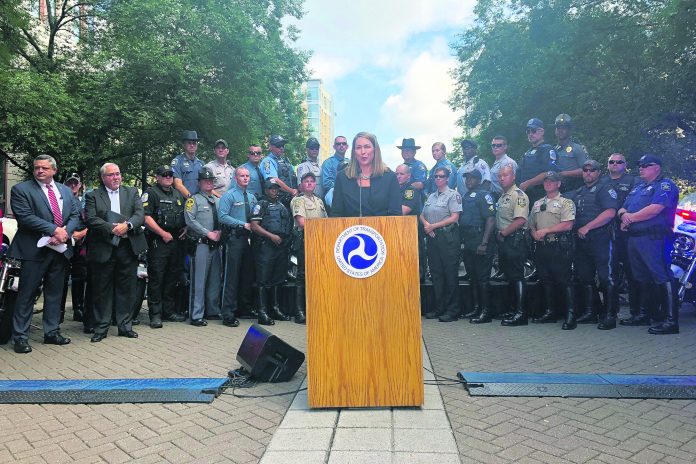
About 30,000 police officers will be out on the roads around the country through the Labor Day weekend to crack down on impaired driving, an annual effort that this year poses potential risks to immigrants who fear getting stopped and deported.
The National Highway Traffic Safety Administration announced Wednesday it will run the high-visibility enforcement campaign during what is one of the deadliest times on U.S. roads. Similar efforts have taken place in previous years, but the heightened police presence this year may increase the fear of potential deportation among some immigrants, given the strict immigration policies pursued by the Trump administration.
Since his arrival in the White House, President Donald Trump has moved to increase deportations, limit the access of asylum seekers to the U.S. justice system and end migratory benefits such as Temporary Protected Status for nationals of countries ravaged by natural disasters or wars, among other policies.
And the Latino community is feeling particularly vulnerable after a gunman who said he was purposely targeting Mexicans killed 22 people in El Paso, Texas, this month.
Partner organizations in the traffic-safety campaign “If You Feel Different, You Drive Different — Drive High, Get a DUI” offered mixed opinions about the possibility that it could lead to the deportation of immigrants in the country illegally.
“The first thing I would say to the immigrant community is, ‘Do not fear if you get pulled over by local police that they are going to check your immigration status,'” said Domingo Herraiz, director of programs at the International Association of Chiefs of Police. “It is not the role of local law enforcement. That is the role of Homeland Security.”
But Darrin Grondel, chair of the Governors Highway Safety Association, said deportations could happen because “it is going to be up to the local jurisdictions. There are very different jurisdictional approaches for that.”
Cody Wofsy, an attorney with the American Civil Liberties Union, said “local law enforcement should not be acting as a federal immigration force, but non-citizens in the country during this campaign, and in general, should be aware of their rights and assert them if they need to.”
The campaign, which begins Friday, has a $13 million media budget to run public service announcements on television, radio, online and on social media and in cinemas to stress that not only alcohol but also marijuana and prescribed medications can cause impaired driving.
“Almost everyone knows that driving drunk is dangerous, puts lives at risk, and get you a DUI, but there isn’t the same awareness for drug-impaired driving,” NHTSA Deputy Administrator Heidi King said.
Although the number of drunken driving-related deaths has fallen over the past three decades, it is still more than 10,000 per year.
While the prevention of impaired-driving is important for all communities, it may be of particular importance for Latinos. Of the Latino children under 14 who were killed in car accidents, 20% of them were in accidents related to the consumption of alcohol.q
















